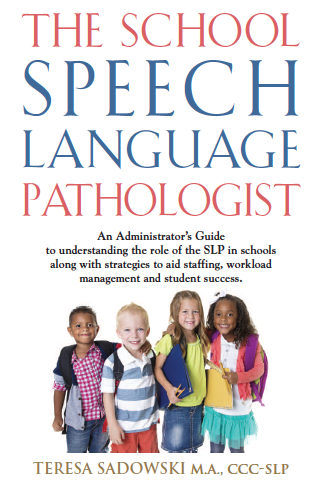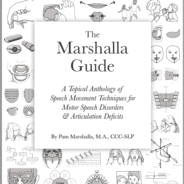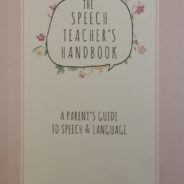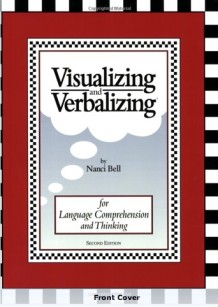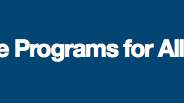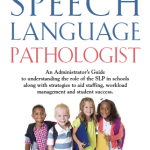My Book “The School SLP”
It’s here!!!
THE SCHOOL SPEECH LANGUAGE PATHOLOGIST is now for sale at all storefronts as an e-book for $4.99:
AMAZON:
http://www.amazon.com/dp/B00Y6YDAZI
BARNES & NOBLE:
http://www.barnesandnoble.com/w/the-school-speech-language-pathologist-teresa-sadowski/1121994087?ean=2940151592819&itm=1&usri=2940151592819
BOOKLOCKER:
http://booklocker.com/books/8038.html
ITUNES:
https://itunes.apple.com/us/book/school-speech-language-pathologist/id998181107
KOBO:
https://store.kobobooks.com/en-US/ebook/the-school-language-pathologist
How are school SLPs handling their caseload during the Covid 19 crisis?
We’ve been out of school now for 4 weeks here in the northeast because of Covid 19. While I only have a small private practice that I put on hold, I have been wondering how school speech language pathologists across the country are managing their caseloads, especially those therapists who are put in positions where they have 30-50-80+ students on their caseload. Even when working in schools some very creative scheduling, often with help from an SLPA, has to take place to manage a large caseload.
If you’re an SLP with a large caseload you’re often seeing kids in groups of 3-5 (basically each student is getting 6-10 minutes per session to work on their specific skills, less if you’re a big data collector). I think of these as Band-Aid services, doing just enough for the students to say they’ve been to speech therapy. Now I am not criticizing because I’ve been in that position and I know why/how SLPs end up in that position. That’s a conversation for another time. However, after this is over I hope SLP’s use this experience to help advocate for lower caseload numbers.
Teletherapy sounds like the perfect solution on paper. I imagine school administrators might think this is easy peasy. I participated in a day long in-service on teletherapy and it seemed to be working well for those presenting. However, it was clear that the presenters honed their skills over time and were basically experts in teletherapy, the same way many of us are experts in articulation/oral motor, working within a specific population or literacy. This was not a step by step conference on how to set up teletherapy but more about how it can be used and aspect that need to be taken into consideration.
I actually thought some of the advanced things the presenters were doing within the teletherapy format were very cool and innovative. However, a few things were pointed out (either during the conference or in conversations among other SLPs) that were significant that I can bet school administrators haven’t even taken into consideration when they tell their SLPs to just do teletherapy.
- Rural and lower economic students may not have the internet access or updated equipment to participate in teletherapy.
- Parents need to have significant buy in and need to be present during teletherapy sessions. First because they have to be able to help their kids connect to teletherapy, second they may have to be facilitators for their child to access therapy and third is a safety issue, you don’t want to be alone on line with a student of any age.
- Seeing kids in groups during teletherapy is tricky. Even with the so-called relaxed rules around HIPPA because of Covid 19, permission is needed to see kids in groups on line. With the parent factor, you really never know if parents have history with each other. Plus do you really want parents to find out that you see their kids with so many others?
- Because there are only so many hours in a day it will be almost impossible to follow any IEP to the letter of the law much less with students who receive extensive services. When all this is done it looks like parents will be allowed and entitled to request compensatory services. I can’t even imagine what that will look like for some, even if only a few parents take advantage of this.
- Bottom line is, it is impossible to see large numbers of students through telepractice
- There will be technical glitches on both ends. Right now I’m reading about a lot of glitches. I assume this is primarily because of volume and many people who are new to the platform that don’t know how to troubleshoot. Is your school IT team prepared to trouble shoot these glitches, calling parents if needed?
- If a glitch happens, do administrators realize you’ve lost a session and how much time went into troubleshooting. Is there a plan B if the teletherapy platform chosen won’t connect? (This week my personal PT had to use a different platform, connecting through her phone, using her personal number).
- When using teletherapy it is unlikely that you will be able to schedule students back to back. If a half hour session ends at 9:59 you are physically unable to make the connections and be ready to go for your next client/group at 10:00 on the dot. If you do get behind, you have no secretary to call and let the groups know. (Again not criticizing because it has happened to me, during traditional therapy it often happens that once you’ve dropped off and rounded up the next group of students you might be 5-10 into the next session). Scheduling half hour sessions 45 minutes apart seems to be the norm to avoid getting behind.
- Until you get very good at teletherapy and build up appropriate materials, teletherapy prep is going to take some time. I would imagine in some cases a pre-email is sent with materials to print out. While that is time well spent, unless pointed out to administrators they will not even think about it.
Do phone calls and emails work any better? Perhaps in some cases, who knows? These are very unusual times. I think most people are grasping at straws and trying very hard to make remote learning work. My thoughts are that teletherapy has a better chance of working well in a private practice or clinic setting. If a school wants you to try teletherapy and sets up/pays for the platform, offers at least minimal training and want all district SLPs use the same teletherapy guidelines, try it out and consider it a learning experience. Keep track of the pros and cons so you can report on it later. Also keep track of all contacts with parents and students phone, email or teletherapy.
If your school administration is leaving it up to you alone to set up and use teletherapy, I would say no. That type of situation just leaves you hanging, especially if you don’t carry your own personal liability insurance. I checked with Trust Risk Management, my liability insurance provider and my policy covers teletherapy. Without school investment, there is no IT support when you need it. If something goes wrong you will be blamed. I’ve worked in schools long enough to know that when this is all over the blame game will be massive, so be prepared.
I would love to know how school SLPs, especially those with large caseloads are managing. Please comment on glitches and successes. Is teletherapy even the term schools are using? Did your school jump into on line learning too soon without the proper research/training? One other thought …it’s too bad CEU’s are not available for those of us who are working on developing our skills in the use of teletherapy. So many SLPs and educators in general are putting a lot of hours in to developing a totally new skill set. I will bet that in the next few years teletherapy becomes a graduate course.
The Marshalla Guide: Book Review
I was recently asked to review a new book. The Marshalla Guide A Topical Anthology of Speech Movement Techniques for Motor Speech Disorder and Articulation Deficits By Pam Marshalla, M.A., CCC-SLP. Being fairly familiar with the quality of Pam Marshalla’s previous works and using/owning many of her books myself I jumped at the opportunity to review her new book.
The Marshalla Guide is basically Pam Marshalla’s life’s work in the areas of oral motor and articulation. Passing on Pam’s knowledge, research and remediation strategies in a structured and well organized manner, the Marshalla Guide covers all things articulation. While in the process of reviewing this book I’ve already used it to refresh my knowledge on lateral lisp, jaw stabilization techniques and other ideas to achieve stimulability of challenging error sounds.
The Marshalla Guide is a pretty big book, almost 500 pages, which might appear overwhelming to some. However, scanning/reading the book I noted that there was quality and valuable information on every page. Finding what you need is not a problem at all. At the beginning of the book Pam Marshalla references the history of articulation therapy and traditional therapy methods. This was a fun read for me because Pam Marshalla and I would have gone to college around the same time and it was exactly what I was taught. I always felt that knowing this underlying history and evolution of speech language pathology in general has helped me build on my skills as a clinician.
Throughout the Marshalla Guide there are therapy techniques, guides, strategies, explanations and specific activities to aid just about any oral motor or articulation situation you may encounter. For me some of this was a good review but I also noted several new strategies and theories to apply. My first impression was that this would make a fantastic college text. Not in dry sense of the term college textbook but in a more meaningful way with practical application. I wish The Marshalla Guide had been on my shelf the past 35 years. It would have increased my confidence around providing appropriate oral motor and articulation therapy in many complex situations.
Who knew there was so much to know about oral motor and articulation? Well, speech Language Pathologists do and so did Pam Marshalla. She was able to take her training and extensive knowledge and organize it in an extremely helpful and user friendly way. You won’t need any other books on articulation therapy other than the Marshalla guide. It is a book you will keep on your shelf forever. A+
***The Marshalla Guide is available at Marshalla Speech and LanguageA launch sale is going on now with 10% off until April 30, 2020. Get an additional 5% off using the promo code schoolspeech.
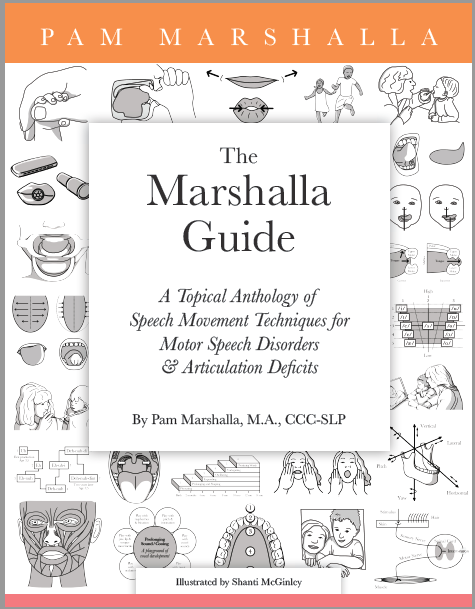
How do administrators and teachers perceive language disabilities?
It has been quite awhile since I posted anything. I apologize for that. No real excuses, except that writing a blog is a job in itself. Plus I think I have been a little disillusioned with the field. However, I haven’t been sitting around feeling sorry for my situation. After 30+ years in schools I’ve made a positive change. I’m still running my own small private practice and it has been going well. I take on a few private clients and a school contract here and there. It has actually worked out well and I’ve learned a lot working as a consultant in a variety of settings with a variety of teams.
The other day I needed another half credit hour to renew my license. I found a one-credit course through Northern Speech Services called Perceptions of Children in Speech Therapy-What the SLP needs to know, presented by Rhonda Wojcicki, MS. CCC-SLP. Initially from the title, I thought it was going to be about the perceptions of the students who have to attend therapy but it was even better. It was about how administrators/teachers perceive students with speech and language disabilities. Which as you might know ties in with the information in my book The School Speech Therapist-An Administrator’s Guide to understanding the role of the SLP in Schools along with strategies to aid staffing, workload management and student success
After this short well researched on line course I got to thinking. I’ve always known that most administrators have no idea about students and their disabilities. I’ve also know that most administrators have no clue about the Speech Language Pathologist role in evaluating and treating students with language disabilities, along with all the duties that come with that. My book published 2015 was written and published specifically for administrators regarding the role of the Speech Language Pathologist in schools. My book on touches on the types of students we service and their disabilities but it was more about what SLPs do in schools. This course made me realize that we might have to take things a step back, focusing more on educating administrators/teachers around language disabilities before focusing on what the SLP needs to manage their workload.
It was wonderful to listen to a course that basically drew the same conclusion I have over the years, that most administrators and teachers have little understanding how language disabilities (and disabilities in general) impact learning and life. My own observations tell me they also have difficulty understanding how proper support and therapy can help students with disabilities. If this was understood SLPs would not have such high caseloads, specific time would be built in for therapy, co-teaching models would be better, younger students would receive therapy more often, higher order language disabilities would be a priority and the list could go on and on.
Basically if administrators/teachers had a better understanding of language disabilities, child development and success with appropriate interventions, SLPs would not be spread so thin in schools. Our contributions in meetings would hold more weight, students would receive therapy more often and we would be consulted on a regular basis.
Several years back when Response to Intervention (RTI) was becoming a thing, I worked in a school that tried to raise the level of understanding of language disabilities with teachers. This was actually a good thing but it wasn’t done well and we had difficulty getting teacher buy in. There were some a-ha moments for the teachers I worked with at the middle school level but they were few and far between. Needless to say principals and administrators were not part of this training.
Lack of understanding of speech and language disabilities is nothing new but in the past our knowledge and role was more respected. Over the years the role of the SLP in schools has become more technical but we forgot to tell people that. When I first started working my caseload primarily consisted of students working on grammar and articulation, with a much smaller overall workload. Now a public school caseload will consist of students with mild to severe language needs covering the whole spectrum of language/learning disabilities. Students use to be sent out for more in depth testing to hospitals or clinics. Now we do it all. I remember that the hospital/clinic testing always held more weight in meetings even if the SLP was the only one at the table who really understood the findings. It was a good bargaining chip for students to receive increased speech and language services.
Now we do the same testing and yet often the team does not validate our findings. In some cases we are not even allowed to spend the needed time to present our findings and explain things to the parents. When we do get a chance to explain speech and language findings, rarely is anyone taking a note, commenting or asking a question. I often wonder if any of the accommodations or goals are read, much less followed or addressed in the classroom. In years past, SLPs could at least count on the special education teacher or school psychologist having some understanding of language disabilities but that has seemed to wane.
Why do administrators, teachers and other team members have such a poor understanding of why/how underlying language disabilities impact learning? Even if it wasn’t part of their initial training, wouldn’t years of sitting in IEP meetings, teaching children at all levels and talking with the SLP increase their levels of understanding to the point where they could say “I think that student has some sort of underlying language disability”. For a lot of teachers and administrators it hasn’t. I have several thoughts on why this has happened.
- Teachers have a lot on their plate with little support
- You can’t easily “see” language disabilities
- Teacher training even in this day and age, years after integration was the norm, still does not prepare teachers for the disabilities they may encounter in their classrooms
- Many years ago administrators were told they had to immediately integrate special education students with little understanding of disabilities, little to no training and no viable plan. Many Administrators still see integration as a blanket policy without considering individual needs or teacher’s ability to do this successfully.
- If a teacher suspects a disability they basically have to jump through hoops, take copious data and try several accommodations (often without guidance) before referring a student through the RTI process. Once in the RTI process it is often a lot of work for the teachers. Not to mention precious time where the student could be receiving more appropriate services is lost and the child continues to fail. I have known teachers to avoid the RTI process by telling parents to directly request an evaluation. This was evident at one particular school when several evaluation requests came across my desk after the first parent-teacher conference several years in a row.
- In the past administrators have often come up through the ranks and would have a lot of experience actually working with students. Today a lot of administrators go right into administration without any experience working with regular or special education students.
- Administrators running special education programs either as the head of the department or as team managers are not always required to have any special education experience. My observation is that team meetings are run very differently depending on the level of special education experience/understanding of the team leader.
- Schools offer very few continuing education opportunities having anything to do with language development. They have experts in the schools so why don’t they use them.
- Special and regular education teachers are expected to focus on curriculum standards and passing that all-important standardized test. They have little to no understanding of the gaps that language/learning disabled students have. A very good example of this is when it comes to writing (again which is important to pass that standardized test). If a language disabled student is unable to organize language, generate grammatically decent sentences and use a rich vocabulary, what makes them think they will be able to do it in writing. There is clearly a gap or disconnection, which others at the IEP table often won’t acknowledge. Their training tells them a template will solve all the problems, SLPs know it won’t.
- Lack of time to do things properly is a huge issue for everyone in schools. Since there is a general lack of understanding of disabilities especially with administrators, there is usually never enough time built into the schedule to do what has to be done. Almost every IEP has a consult piece, yet time is not built in to meet with teachers and most consulting is done when passing through the hallway.
- Schools do not use enough Universal Supports to aid learning for all.
- The typical 2×30/week for therapy might fit the school schedule but does it fit the child’s needs? Because of this lack of flexibility imposed by the school schedule this perhaps demonstrates that therapies in general are not perceived as important.
- Speech and language issues are often seen as medical needs not educational needs.
- Administrators don’t know what they don’t know. In over 30 years working in schools I’ve never once been asked what I need to manage the workload or what the students need to be successful. It’s my impression that teachers are rarely asked either. Given the structure and culture of most schools, school personnel are often afraid to speak up on such issues.
So what can be done at this point to raise the awareness and understanding of language disabilities and the impact on learning? I wish I had the answer. Administrators influence budgets and policies that directly impact the quality of programs and services thus impacting the success of students. For them not to understand the varied learning style of a good chunk of their students is not good. My experience is that administrators will support a new fad program with more enthusiasm than they will support direct services for language-disabled students. If the underlying cause is that they do not understand language disabilities or perceive language disabilities separate from learning, then clearly more education is required. Which was one of the basic conclusions taken from the course.
The answer seems simple, provide administrators and teachers ongoing education around awareness and understanding of language disabilities and their impact on learning. After over 30 years working in schools, I just can’t see that happening until someone with a lot more clout than the lowly single SLP working in a school starts pointing it out. Creating workshops might be a good start but still you would have to get buy in.
I enjoyed listening to Perception of Children in Speech Therapy-What the SLP needs to know. It gave me a lot to think about. I’d like to see a similar conference marketed toward administration and teachers. I will be suggesting it to the author.
Smart Goals made easy
Hey SLPs
If you are thinking about your personal “smart goal” for the next school year you might want to check out my site on Teachers Pay Teachers. A few years back the SLPs in my district were asked to put together a short in-service for teaching assistants about the role of the SLP in schools, students we work with and how they can support language development in the classroom. This was to satisfy one of our “smart goal” requirements. Since I did put a little bit of work into it I decided to make it available on TPT. The in-service is titled Speech and Language Services In Schools In-service for Teaching Assistants. It is made up of a presenter’s packet and a packet for participants. The in-service is appropriate for all levels through middle school. When I presented this in-service I supplemented with generic guidelines for over language development/language expectations based on the ages the participants were working with. It is a quick and easy in-service. Administrators are always looking for appropriate in-services for assistants/paraprofessionals.
The other “smart goal” activity I presented was to write a monthly/bimonthly blurb in the school newsletter on language development and what parents could do to engage and encourage their child’s language. Several of these can also be found in my TPT store, The School Speech Therapist. They are available in Word so they can be edited to fit your newsletter or if you have other words of wisdom.
I would love to hear about other smart goal ideas. So many SLPs think they have to reinvent the wheel or take copious amounts of data to achieve their smart goal. Reality is it does not have to be that challenging and there is no reason not to share ideas.
One year many of my students had an objective to share 1-2 experiences. I made that one of my student smart goals, that every student would share experience information during each session. (They also had to show that the listened to each other by retelling others experiencesJ) That was so easy to keep track of and that’s how we started therapy.
I would love to hear about other personal and student based smart goals that have worked well.
The Essential 55-book review
I was dusting some of my bookshelves and found this book The Essential 55 by Ron Clark. I remember being very impressed with this book back in 2009 and even wrote a book review. Remember something is a few years old doesn’t mean it isn’t very good or passe. Common sense and good manners go a long way. This book went beyond focusing on successful students (which seems to be the only focus these days)…it focused on creating successful people.
From 2009 Your Middle Schooler: A Unique Age
I’m always on the look out for common sense ideas that enhance more than just academics. In my field of Speech Language Pathology, pragmatic skill development is as important to us as receptive and expressive language development. Pragmatic skills are the social speech skills that help us become effective communicators, critical thinkers and problem solvers. People who are not strong students academically can do well in life if pragmatic skills are well developed and expectations are high.
I recently picked up the book The Essential 55, An Award-Winning Educator’s Rules for Discovering the Successful Student in Every Child, by Ron Clark winner of the 2001 Disney Teacher of the Year Award. The title caught my eye, I see so many kids that are bright but seem to be lacking the tools for success. In the Essential 55, Ron Clark gives his opinion on the 55 rules that can make every child successful as a student. His rules are not on the order of study more, read more or stay after school for help. Clark’s rules are rules for life. The focus of the rules is on enriching pragmatic awareness, improving pragmatic skills and expecting basic etiquette. Not to mention his rules make sense.
The Essential 55 also focuses on providing clear cut expectations for a child. If you read my blog, you know I am BIG on providing expectations for children. Six of The Essential 55 that I like best are:
#1 Responding to Adults
Mr. Clark suggests that you tell/expect children to say, “Yes sir” and “no ma’am. He says it set the tone for the kind of respect he expects from his students. For him a nod of a head or a “yeah” is not good enough. I sometimes feel the child/adult relationships, especially in schools, are too casual. This is great tool for kids to have, saying, “yes sir” and “no ma’am” usually makes a very good impression on others.
#2 Eye Contact
Eye contact is so important in communication. When you make eye contact, you are attending to and acknowledging the speaker. From my perspective, eye contact is also important because without eye contact you miss many of the non-verbal cues that clarify messages. Plus it’s polite. When a child’s disability effects their ability to make good eye contact, I spend a lot of time trying to get eye contact to the best level possible.
#6 If you are asked a question in conversation, ask a question in return
This is an excellent habit to get into. Again, it shows people you are listening and interested. This is a good foundation for developing good conversation skills.
#11 Surprise others by performing random acts of kindness
This is an excellent suggestion and should jut go without saying. However, we all need reminders to do this from time to time. How many times have you said to yourself “I should have helped……..”, when regretting that you did help someone out. This one goes in effect at my house today. We all seem to be lacking in that lately. Recently, one of my very disabled students in the middle of a tough moment said to me “Stop being nice to me!” When I responded with a smile “No, I can’t do that, I am just a nice person”, he was so taken back by my kind response he calmed down almost immediately. A little kindness actually made a tough situation easier and almost humorous for me.
#15 Do not ask for a reward
Mr. Clark rewards his student’s often but asking for a reward is out of the question. He feels students should strive to do their best all the time not just for a reward. He states that in the real world rewards are not always given for a job well done. He feels that that this rule helps kids appreciate their efforts over their rewards.
#48 If anyone is bullying you let me know
He wants the kids to feel safe in school and know that he will stand up for him. Kids should never have to put up with bullying in school (we would not expect or put up with bullying at work). A big step to preventing bulling is to empower children to report bullying incidents since most happen out of earshot or view of adults.
If you notice Ron Clark’s rules are not just school or student rules they are rules for life. It was hard to pick just 6 to highlight. I would like to tell you more of them but you will just have to pick up his book.
With the Essential 55, Ron Clark has developed a “hidden curriculum”. A “hidden curriculum” is defined as the rules we all know but are never taught. I could see his Essential 55 presented weekly or expanded and presented daily at announcements instead of (or in addition to) “word of the day”.
This is a good read for both teachers and parents. The reality is if you expect good things from kids and are willing to teach them, they usually deliver.
Just renewed my liability insurance…..don’t forget yours!
Over the years I’ve had a habit of forgetting to renew my liability insurance. Now I just put it in my calendar and keep the bill with my personal bills. Trust Risk Management Services made renewel very easy this year letting me renew on line. Since I incorporated this year and started a private practice I did have to make some changes but usually the renewal is straight forward.
While I’ve never needed to use my liability insurance I have carried it most of my professional career. Sorry here is my soap box…If you don’t carry liability you really should. Schools, clinics and hospitals all carry insurance that will cover you but in this very litigious world you can be sued personally. My fee for part time work was right around $125 which makes it very affordable for a piece of minds.
You can go to the TRMS web site for a comparative rate. Just click on the link below
Accommodations are they really that effective?
Every once in awhile I read back through my blog and look at the relevance and passion of my posts. I recently reread the post called “Are accommodations taking the place of specialized instruction”
Looking at some recent IEPs I would think the answer is yes. I know I still write a lot of accommodations. My reasons are because I know I either don’t have the time to follow up on every thing during the limited weekly sessions or there are things I want to address (and do address) that just can’t be measured easily. Now I know most of the accommodations are related to testing but I have to ask are those accommodations being followed every time a test is given. With 20-30 kids in a classroom I seriously doubt it. I actually worked in one school where they though the accommodations I presented were only suppose to be followed in PE and other specialists. I set them straight but the Harvard educated program manager did not believe me. I think the biggest problem with accommodations is that it gives the parent and student the false sense that all will be well with accommodations. I have never understood why we are not front loading kids with specialized services when they are little but that is a topic for another time.
So what are your go to accommodations for you speech and language students? Who follows up on if the accommodations are being used? How do you measure if the accommodation is helpful or not? Do teachers come to you looking for help implimenting accommodations? Does anyone feel the same way I do that accommodations are taking the place of specialized instruction?
The Speech Teacher’s Handbook: Book Review
I recently came across this book on Amazon. It piqued my interest so I bought it. It is called “The Speech Teacher’s Handbook, A Parent’s Guide to Speech and Language” by Molly Dresner, MS SLP-CCC. I found the title to be a little awkward but the information in the book to be pretty good. First of all I know a lot of you out there will take exception to the use of “The Speech Teacher”, you all need to get past that. Face it we have a branding issue, which is certainly a topic for another time. I can understand why Ms. Dresner used the title “Speech Teacher” because in the world of early intervention that is how we are known. In the book she makes it clear that she is a “Speech Language Pathologist.”
The second part of her title provided a little more explanation regarding whom the book was written for but still seemed a little incomplete to me. People who are not Speech Language Pathologists might ask Speech and Language what? Parents might not know immediately that it is written for them.
Getting past the title, this little book contains a lot of good information for parents on how to foster speech and language skills with their little ones. Ms. Dresner’s guidance and explanations are clear and concise. There is a nice little summary at the end of each chapter. Some easy to understand speech and language developmental norms are found at the end of the book.
A seasoned SLP might look at some of Ms. Dresner’s suggestions and say that most of her information is just common sense. However, I’m seeing more and more older students who can’t name body parts/common objects, have poor listening/memory skills and produce short sentences so some parents out there do need this information.
The chapter on “Cocktail Talk” puzzled me a little bit since that seemed to be written for SLP’s. While Ms. Dresner initially mentions that you should make sure parents know they can get an assessment through their school system, she goes on to mention parameters of speech and language development in a variety of areas. (I personally back off on talking about speech and language issues when asked outside the professional realm. I have found that that people who engage me usually don’t follow my advice or take my advice to mean the child is probably ok. When people speak to you outside of the professional realm and without the child there, you have no knowledge of their background or other developmental needs. I’m big on including both in my assessments of students, even my middle to high school students.)
I’m giving thumbs up on this book. I think it would be an excellent resource to give out either to early intervention clients or as a welcome to daycare packet for little ones. Day care teachers could read this book as a refresher and daycare assistants could use this book as continuing education. Ms. Dresner has put together some wonderful ideas for simply interacting with your child through out the day. This book is not just for children with speech and language delays but for typically developing children as well. This book will “Help You Help Your Little One” which I believe was Ms. Dresner’s goal when she sat down to write this book.
Visualizing and Verbalizing goals/objectives
Several years ago I took the Visualizing and Verbalizing course. It must have been a 3 or 4-day course. I didn’t take it directly from Lindamood Bell but from a local agency that was approved by Lindamood-Bell and used Visualizing and Verbalizing in their practice. I was honestly very impressed with V and V. My initial impression was that it tapped into a lot of what I was trying to do with many of my students. Basically it presented me with a better-organized and sequential program that fit my needs at the time. At the completion of the course I wrote a reflection paper, which I feel is still relevant today.
Now ironically, the V and V kit along with LIPS (then known as ADD) kit sat on my inherited shelves for years untouched. I seem to remember seeing them collecting dust in various reading specialists offices too. I’m really sorry I didn’t jump on this bandwagon sooner. I also regret not taking the longer LIPS course when I was younger and becoming an expert in it.
I think most of the people taking the course with me were just as excited and anxious to use V and V in their practice. The big question came up. How do we write goals for this? All the controversy around goal writing was just starting to heat up and we needed something substantial. As a group we talked about wording and I’m still searching for those notes. What I did find was the handout given to us by the instructor after our group discussion. Keep in mind that the instructor worked in a clinical setting and that these were generated long before schools started requiring some tie in to curriculum. Also in schools we are not suppose to write goals around a specific program. While V and V isn’t mentioned the first one refers to structure words and the second one mentions felts.
- Student will verbalize the main idea and details of a given picture, word or sentence using 10/12 of the structured words independently and spontaneously.
- Student will read a paragraph, verbalize his images after each sentence or chunk of sentences (2-3 sentences), and give a picture summary with 80% accuracy (4/5 felts)
- Student will state the main idea of a fiction or non-fiction paragraph 8/10 times.
- Student will read a single or multiparagraph selection, verbalize a retell which includes the main idea of a paragraph and his images after each paragraph and dictate a summary of the selections 8/10 times
After rereading these, it’s clear that these are more less an objective for each stage of the program.
Several years later, I still like V and V and use pieces of it. Visualizing as a skill is being taught more frequently in classrooms than it was even 10 years ago. Schools now have reading specialists that hopefully incorporate some visualizing skill development. I tend to use the program to help expand language, increase vocabulary, help to recognize details/background information and improve semantic/pragmatic understanding. I have specific photos on my IPad that I collected over the years and often use the structured words in conjunction. I sometimes take it down to an even lower level using just one or two of the structure words as appropriate.
However, the real question for me is why don’t these very expensive programs come with goal suggestions that can be used in schools? Why don’t we leave conferences with specific goal language in hand? So often we leave conferences with a lot of background information (sometimes a lot of review) and very little in terms of specifics around implementation. I feel the same way about formal tests; there is so little discussion on test interpretation and what to do about it. I get that we are suppose to use our clinical judgment but a little guidance and a few more examples would be nice. I guess that’s a discussion for another day.
Hey if you haven’t tried V and V it’s worth taking the course. As an SLP I’ve never had a chance to use the full kit. However, I would love to be involved with a school or clinic that uses the program on a regular basis.
Trust Risk Management Services for SLP Liability Insurance
I just want to say thank you to Trust Risk Management Services for your continued support of my blog The School Speech Therapist the past 3 years. Trust Risk Management Services provides liability insurance for SLPs with comprehensive coverage and reasonable rates. I hope if you are a practicing SLP you already carry some type of liability insurance. However, if you don’t have insurance please take a look at the policies offered by TRMS. If you have insurance, next time your policy is up for renewal I hope you will take the time to compare your policy to what TRMS offers.
My own personal feeling is that personal professional liability insurance is a must. Protection offered by schools, hospitals and agencies is usually there to protect their interests not necessarily yours. https://theschoolspeechtherapist.com/wp-admin/post.php?post=1394&action=edit


